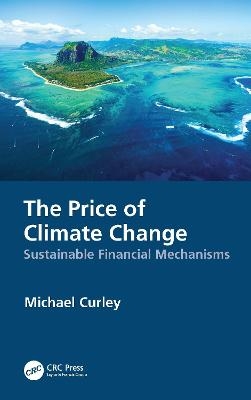
The Price of Climate Change
CRC Press (Verlag)
978-1-032-05791-0 (ISBN)
The Price of Climate Change: Sustainable Financial Mechanisms presents a summary of the effects of global warming with specific emphasis on what these phenomena will cost and the price we must pay for trying to mitigate these processes. Some of these mitigation strategies include reducing our use of carbon by converting to non-carbon energy sources such as solar, wind, and nuclear, or lower-carbon sources such as natural gas. The book examines the financial implications of society adapting to the effects of climate change, including rising sea levels, extreme weather events, and desertification. Further, it addresses the costs to make buildings more resilient to climate change, such as flood considerations, improving durability against severe weather, bolstering insulation, and more. Sources of funding for any type of environmental projects, including those for climate change mitigation, are also examined. These include governmental budgets at the federal, state, and local levels, international development banks, international capital markets, and private funds.
Features:
Addresses global climate change issues from the standpoints of mitigation, adaptation, and resilience and the funding mechanisms for each.
Describes different types of energy sources as well as their respective costs, including nuclear, solar, natural gas, and more.
Examines the effects of agriculture on climate change as well as the potential ways it can be used to help mitigate the issue.
The book’s straightforward approach will serve as a useful guide and reference for practicing professionals and can also be appreciated by the general public interested in climate change issues and mitigation strategies.
Michael Curley is a lawyer and currently a visiting scholar at the Environmental Law Institute in Washington, DC. He founded the Environmental Finance Centers at the University of Maryland, Cleveland State University, and the Maxwell School at Syracuse University. He served as a senior lecturer at the Johns Hopkins University, and he was also an adjunct professor of banking and finance at New York University. He has also taught environmental law and finance at the Vermont Law School. In 1990, he was appointed to the Environmental Financial Advisory Board (EFAB) at the EPA, where he served for 21 years under four US Presidents.
Introduction: Paying for Climate Change
Prologue
Chapter 1 The Lake People
Chapter 2 The Beginnings
Chapter 3 International Developments
Chapter 4 Principles of Paying for Climate Change
Chapter 5 The Price of Rising Sea Levels
Chapter 6 Extreme Weather Events
Chapter 7 Desiccation
Chapter 8 Solar Energy
Chapter 9 Locational Renewable Energy Sources
Chapter 10 Nuclear Power
Chapter 11 Natural Gas
Chapter 12 Climate Finance Strategies
Chapter 13 The Price of Renewable Energy
Chapter 14 Other Renewable Energy Financing
Chapter 15 Carbon and Agriculture
Chapter 16 Tree Planting
Chapter 17 Carbon and Transportation
Chapter 18 Cap and Trade
Chapter 19 Statewide or Regional Funds
Chapter 20 Coastal Resiliency Finance
Chapter 21 Flood Insurance
Chapter 22 Environmental Impact Bonds
Index
| Erscheinungsdatum | 14.09.2021 |
|---|---|
| Zusatzinfo | 20 Line drawings, black and white; 20 Illustrations, black and white |
| Verlagsort | London |
| Sprache | englisch |
| Maße | 156 x 234 mm |
| Gewicht | 453 g |
| Themenwelt | Naturwissenschaften ► Biologie ► Ökologie / Naturschutz |
| Technik ► Bauwesen | |
| Technik ► Umwelttechnik / Biotechnologie | |
| Wirtschaft ► Volkswirtschaftslehre | |
| ISBN-10 | 1-032-05791-2 / 1032057912 |
| ISBN-13 | 978-1-032-05791-0 / 9781032057910 |
| Zustand | Neuware |
| Informationen gemäß Produktsicherheitsverordnung (GPSR) | |
| Haben Sie eine Frage zum Produkt? |
aus dem Bereich


